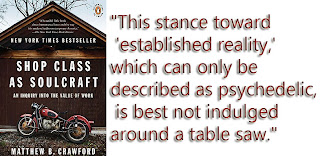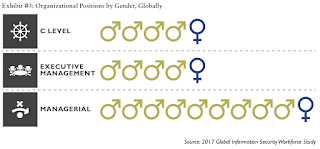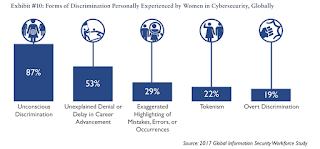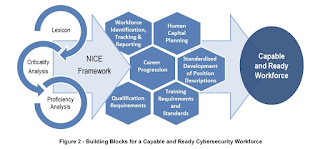I was in a foul mood when I started writing this, but by the end I’d thought my way out of the frustration, which is the most I can ask from a reflection…
I’m at a loss to explain how we can be so dominant in provincial competition and then fumble Nationals. Two times now we’ve taken the time and expense to come out to Skills Canada Nationals and have come up short. In the latest case I could not have possibly arranged things any better. From coop to employment opportunities to multiple in-class opportunities and supports, my current candidate had every tool possibly on hand to achieve success, but we haven’t. This is the worst possible time to ask me (on the plane, flying home, empty handed), but I’m feeling tired, frustrated and struggling to understand why I’d go through this again.
 |
| 4am wake up for a 10am departure – moving hundreds of people, many of them with hundreds of pounds of tools is a logistical challenge. |
A consistent issue with leaving our small town to come to nationals is circumstantial. In our first go around, the social pressure around missing high school prom proved such a distraction that my candidate arrived with a pocket full of angry texts and little chance to focus on preparing for the coming battle. In this year’s case, a sports injury in a pointless local game the week before the competition led to a week away in wheelchairs and on crutches. In both cases small town life conspired to produce the kind of static that knocked capable technicians off a medal. But maybe there is more to it than that.
I don’t think the competition is particularly technically challenging. There is nothing asked that my competitors aren’t directed to and encouraged to get a handle on. This has worked so well provincially that we’ve medalled the past three years (two golds and a bronze), but at Nationals both times the wheels have fallen off the cart. That we can do so differently at two near identical competitions suggests that our issue is psychological, not technical.
 |
| Team Ontario is a monster! |
So, what about Nationals is so overwhelming? The assumption (I think) is that Nationals will be next level, but Ontario provincials have many more competitors from many more schools. Getting out of Ontario is by far the most difficult part, and we’ve managed it twice. The people we face at Nationals aren’t IT unicorns; they’re kids, all with less experience in competition. In some cases they only had to show up to get to Nationals because there were barely any provincial competitors. I’d assumed that our previous ‘blind’ Nationals experience (where we placed 4th anyway), had prepared us for this one. My candidate was more experienced, more focused (barring sports injuries and school plays) and had been given many more opportunities to develop their IT skills than our first go around, yet subjectively we’ve underachieved. Our best hope now, prior to knowing the scoring, is a tie with our last attempt, but I fear that might be too much to hope for.
 |
| Got the kit… |
Last year we blew provincials and didn’t go through. I lay the blame for that entirely at my own feet. The change to a Toronto based venue meant a cruel and unusual commute that made us exhausted and late; we didn’t have a hope of peak performing (yet we still managed a medal). This year we did back flips arranging hotels and finding ways to minimize the financial burden on our competitors in order to ensure our best shot, and that worked. Leading up to Nationals I made sure everything was taken care of and any possible need was filled prior to sitting down to compete.
Expectations are perhaps the killer here. Our first time around I took Nationals to be a reconnaissance. We’d already over achieved to such a degree at Provincials that I was just happy to be there. Sure, a medal would have been nice, but understanding the contest was my real goal. That we came so close to getting a medal had me convinced we were moving in the right direction. This time around my previous champion gave a detailed rundown of what to expect on Nationals and we didn’t go in blind, yet we have failed to capitalize on that information. This could mean it was bad information, but I doubt that. It could also mean we simply didn’t make the time to make use of that information because my two competitors have an unhealthy competitiveness between them. We have underperformed, yet the competition was described as too easy, and we knew what was coming. How are we bottom half? With the medal ceremony behind us, I’m left wondering where we are, and, as a coach, I don’t like the feeling – the lack of understanding feels like a failure on my part.
This might sound like whinging or poor sportsmanship, but I didn’t spend all the time and money and stress to not place again. This isn’t even a case of gold or die, just knowing we were there or thereabouts would have met my expectations; I don’t think that’s an absurdly challenging goal. If we didn’t want to be competitive, why did we compete?
 |
| Pre-contest huddle. |
One of the more surprising aspects of this trip was just how different my competitor was. On our first go I had what looked like an Eastern European rock star who had the swagger to go with it. He had the technical chops, but his cockiness also meant he’d tackle problems aggressively and with some verve; he wasn’t intimidated by anyone or anything. I suspect that fourth place finish was as much the result of that fearlessness as it was his technical skill.
This time around I had an anxious perfectionist who I couldn’t read very well and (I fear) I didn’t coach as effectively as I could have. Maybe, in this case, a less acerbic approach might have served us better, but my approach to coaching and teaching has always been to encourage an independent and experiential approach to the challenges of technology. I give students the gears if they make a silly mistake, but never penalize them for it. The ones who stick around end up resilient, self-aware and technically superior. I don’t baby students and hand them answers, I’d rather see them struggle to a solution themselves. The result is a technician who might not know all the answers, but damn well knows how to find them.
 |
| Like herding cats… |
Except at Nationals.
This time around I had a university bound, academically strong student for whom this was just one of many feathers in his hat. This is his second national final in an ICT related field in as many weeks. At the CyberTitan National Competition, on our first go at it, we placed as high as I’d hoped we would and that trip was (I think) a great success. My expectations here were actually similar this week, to finish in the top half, but we’ve failed to do that. There were only 7 competitors in the national IT & Networking final – three provinces and all the territories failed to produce candidates who could meet national standards – so finishing in the top half would have meant a medal.
My first national finalist was a college bound kid who had been on the verge of failing in the years before and found his way out of that mess though finding his genius in info-tech. He ended up going to college for IT and considers his Skills experience a vital piece of his career (as he should). I never once heard my first champion say, ‘it’s just IT’ when someone asked him what competition he was in, but I heard that too many times this week. Downplaying the field of study (I fear) when competing at the national level in it was a reflection of the doubt that plagued this medal run. At one point I heard, “I don’t understand why I’m here with all these people” (meaning experts in their skilled trade). I thought it might have been false modesty, but it in retrospect it was doubt, which is a disaster when you’re in a pressure cooker like Skills Nationals. Maybe I should have identified that and talked about it earlier, but if years of straight ‘A’s in computer and software technology courses, multiple provincial medals, full time summer employment as a network technician, a top five finish in the related cybersecurity contest nationally, detailed notes from all the competitors who came before and a coop in IT wasn’t enough to instill some confidence, I fear nothing will. I don’t think this result was a deficit of technical skill.
 |
| Watching mastery across such a wide range of skills never gets old. If you get a chance, go to Skills Nationals. |
This year in electronics we took a giant step backwards, to the point of me wondering if we were ever moving in the right direction. My competitor was crushed by our poor result and this prompted me to chase down her judges and request some clarification on our results. She’d actually ended up in the medals on the two toughest categories (building circuits), which helped restore some confidence. Then we got clarification on what we missed, which has shed such a bright light on what we need to do that I can’t believe we won’t be contenders next year. Her response to all of this was stubborn anger. I can work with that. One of the judges encouraged her to hang in there saying, ‘it’s the failures that toughen you up and eventually make you a champion.’ It’s that kind of thing that makes me want to do the hours and hours of volunteer work it takes to build up to winning provincials again and perhaps going through another exhausting and potentially hope crushing week at nationals.
Maybe one of the things I need to be doing when I’m looking for candidates to take on this overwhelming challenge is to look for the tenacious scrappers who can’t, won’t and don’t stop. Maybe that was missing this year. A student following in his brother’s footsteps for whom things had fallen into place, winning medals even when he claims the whole thing was a disaster was suddenly doubtful of his place in the competition. I don’t know what to do with that. Maybe that judge is right – it’s overcoming the setbacks that make you commit to the competition and fight with conviction. Win or lose, if we left everything on the competition floor I’d be happy with the result, but something stopped us from doing that this time. Perhaps it was the injury, perhaps it was nerves, perhaps I’m just the wrong coach for a this particular student, which is a shame for us both.
 I didn’t do well in school. You can count the number of ‘A’s I got on one hand. Things generally have never come easily to me, I have had to fight for them. I dropped out of college, out of an apprenticeship and struggled to get into and through University. I’m good at many things, but I don’t think I’ve ever been a natural at anything. The things I’m good at are the result of determination and stubborn disregard for failure. It’s that kind of tenacious student that I’m best able to help because I can identify with them. I find the honour roll perfectionists alien and don’t always know how to work with them to bring out their best. Perhaps the best thing I could have done here was to send another teacher instead. If I could go back and rerun this week over and over again Groundhog Day style, that would be one of the variations I’d try.
I didn’t do well in school. You can count the number of ‘A’s I got on one hand. Things generally have never come easily to me, I have had to fight for them. I dropped out of college, out of an apprenticeship and struggled to get into and through University. I’m good at many things, but I don’t think I’ve ever been a natural at anything. The things I’m good at are the result of determination and stubborn disregard for failure. It’s that kind of tenacious student that I’m best able to help because I can identify with them. I find the honour roll perfectionists alien and don’t always know how to work with them to bring out their best. Perhaps the best thing I could have done here was to send another teacher instead. If I could go back and rerun this week over and over again Groundhog Day style, that would be one of the variations I’d try.
I’m most effective helping the stubborn, scrappy student I have much more in common with attain their mastery than I am trying to aim an honour roll kid at gold. Those scrappy students also play to my love of underdogs. As I said earlier, perhaps expectations are what make this so difficult to take. This time I thought I’d brought a howitzer to a knife fight. As fixated as I am in this moment on failing to medal again, in less fraught moments I’m more about a good struggle than I am about winning – but it’d sure be nice, just once, to sit on this long road home with something tangible to show for it.
***
A week after we got back we had an interview with the local paper. When asked what I thought something like Skills Canada does for a student I immediately went to the degree of resilience it develops. I truly believe that competition is good for us all, and that competition has to involve winning and losing. At the opening ceremony the MC asked the audience of hundreds of competitors who was going to win a medal, they all started cheering – the unspoken disappointment was left hanging in the air, you can’t all be winners. More people come home disappointed after Skills Nationals than satisfied. That’s no bad thing. My goal as a coach is to find ways to help competitors put their best foot forward. This year has taught me a lot about how I can better do that.
from Blogger https://ift.tt/2HWYoRz
via IFTTT





 In schools we create artificial learning environments for our children that they know to be contrived and undeserving of their full attention and engagement… Without the opportunity to learn through the hands, the world remains abstract and distant, and the passions for learning will not be engaged – Doug Stowe (
In schools we create artificial learning environments for our children that they know to be contrived and undeserving of their full attention and engagement… Without the opportunity to learn through the hands, the world remains abstract and distant, and the passions for learning will not be engaged – Doug Stowe (

















